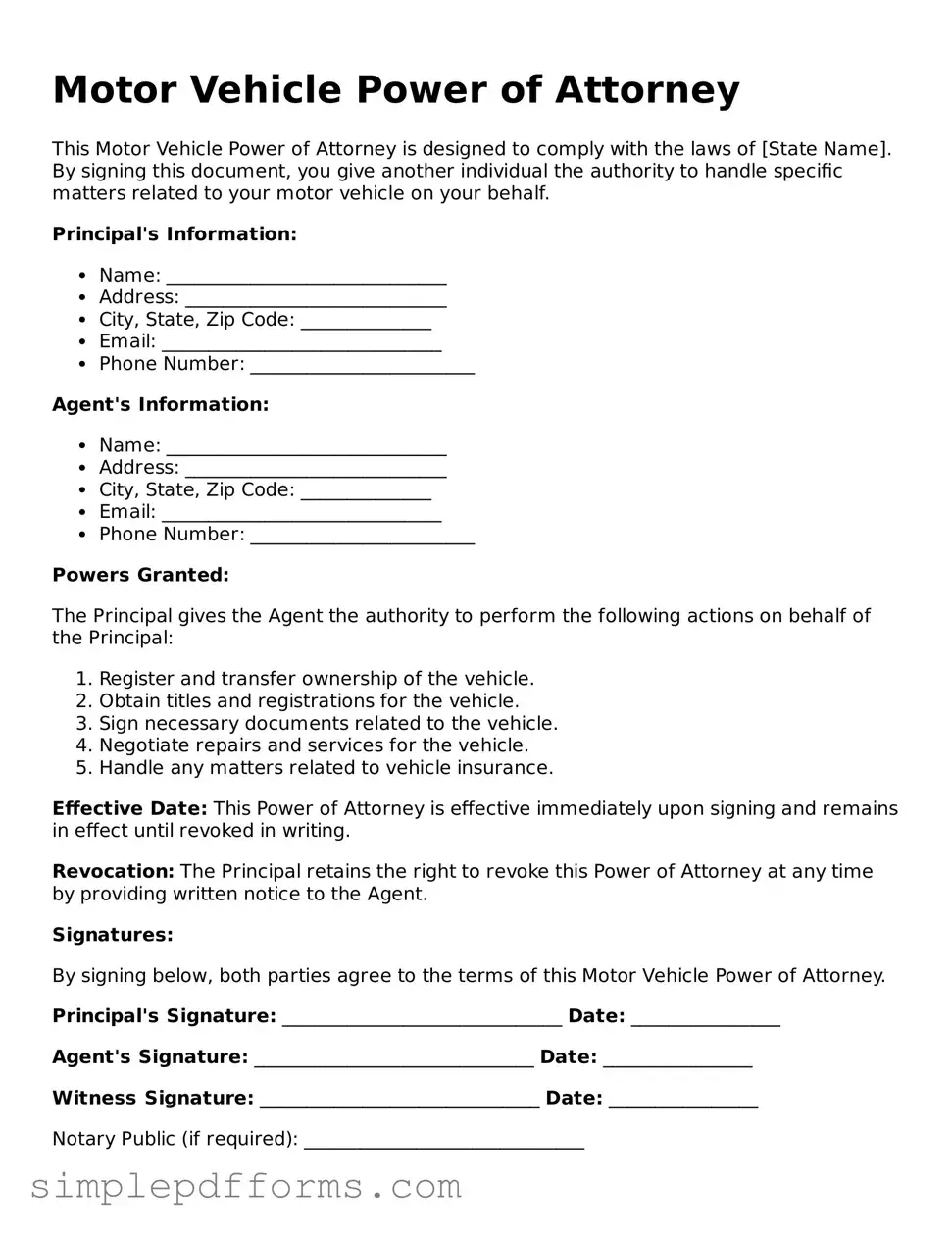Free Motor Vehicle Power of Attorney Form
The Motor Vehicle Power of Attorney form is a legal document that allows one person to authorize another to act on their behalf regarding motor vehicle transactions. This can include tasks like registering a vehicle, transferring ownership, or handling title issues. Understanding this form can help streamline processes related to vehicle ownership and management.
Open Motor Vehicle Power of Attorney Editor Now

Free Motor Vehicle Power of Attorney Form
Open Motor Vehicle Power of Attorney Editor Now

Open Motor Vehicle Power of Attorney Editor Now
or
Get Motor Vehicle Power of Attorney PDF Form
Your form is waiting for completion
Complete Motor Vehicle Power of Attorney online in minutes with ease.